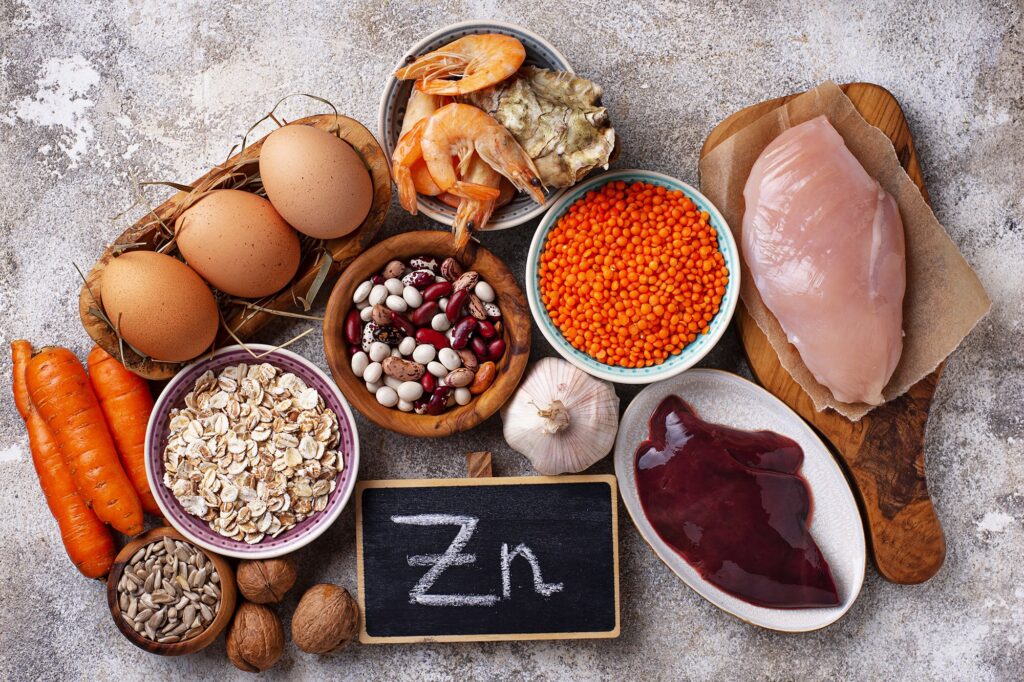
Low zinc levels might jeopardize your immune system. As we age, our immune systems become more prone to deterioration, which can lead to major, even deadly, fitness issues. It is critical to maintain healthy immunity to minimize this loss. By following a diet high in photochemical and critical nutrients.
Eating healthily lowers sensitivity to respiratory pollution since numerous micronutrients aid in normal immunological properties. Photochemical derived from vivid greens, culmination, and other plant substances have antimicrobial and immune-boosting properties.
Keeping Zinc Levels Up as We Age
The weakened immune system makes people more susceptible to pneumonia and influenza. Increasing the risk of developing autoimmune diseases and malignancies. Maintaining an appropriate zinc reputation can help to limit the immunological deterioration that often comes with ageing.
In the United States, less than half of elderly persons get enough zinc. The problem is exacerbated by the fact that as we age, our absorption performance may deteriorate.
According to research, maintaining appropriate zinc popularity may be especially important for preventing pneumonia in older people. Infectious infections, along with pneumonia, are the most serious – but avoidable – types of pollution for the elderly. In a study of elderly people in nursing homes. People with normal serum zinc had half the number of antibiotic prescriptions and half the number of pneumonias as those with low serum zinc.
According to research, the elderly are at risk of zinc deficiency
Zinc supplementation is recommended by studies on elderly people. Improving zinc’s repute benefits immune system function and infection resistance. In a study, people aged 55 to 87 showed lower plasma zinc levels as well as increased oxidative stress and inflammatory indicators. In comparison to younger adults. Half of the older persons received zinc dietary supplements for 300 and 365 days, while the other half received a placebo. The rate of respiratory infections, as well as infection and oxidative stress indicators, was lower in the zinc group than in the placebo group.
A study published in the American Journal of Clinical Nutrition provided zinc-deficient nursing home residents a supplement or a placebo every day. After three months, the organization’s serum and T cellular populations had doubled.
Vidalista immunity begins to grow around the age of 60 to 65 in those who aren’t consuming a healthy diet to boost their immunological characteristics. However, even those who are following a healthy diet may require supplementation. Zinc desires are projected to be around 50% more beneficial to people. That adheres to a completely plant-based diet. Because plant foods have a lower bioavailability. Phytate, an antioxidant molecule found in whole grains, legumes, nuts, and seeds, inhibits the absorption of several minerals, including Furthermore; minerals other than iron and calcium interfere with absorption. Copper also competes with binding proteins within the cells of the body.
How Does Zinc Aid Immunity?
However, it has several unique functions within the frame. Immunity characteristics are faulty. The effects of ageing are similar to those of deficiency, meaning that decreasing might play a significant role in the age-related loss of immunological characteristics. Is required for DNA synthesis and cell proliferation. As a result, tremendously multiplying cells, such as immune cells, rely on adequate delivery. Deficiency impairs the development or function of several immune cells, including macrophages, neutrophils, natural killer cells, T cells, and B cells.
In addition to its role inside the immune system. Additionally, it lowers oxidative pressure, acts as a structural protein with the help of stabilizing proteins, regulates the expression of many genes, and drives numerous chemical events in the frame. It is also essential for neurotransmitter release in the brain, as well as insulin packing and secretion.
Maintaining your reputation is crucial to living a long life. Improve your health by enhancing the operation of your immune system. When combined with a nutrient-dense, plant-rich (Nutritarian) diet, it slows the ageing process. Also reduces the risk of pneumonia and other potentially fatal diseases.
In addition to its role inside the immune system. Additionally, it lowers oxidative pressure, acts as a structural protein with the help of stabilizing proteins, regulates the expression of many genes, and drives numerous chemical events in the frame. It is also essential for neurotransmitter release in the brain, as well as insulin packing and secretion.
Also Read, How Green Tea Benefits Men’s Fitness




